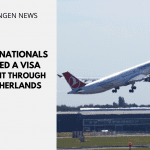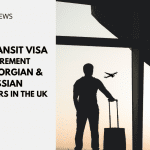Everything You Need to Know About a Schengen Transit Visa
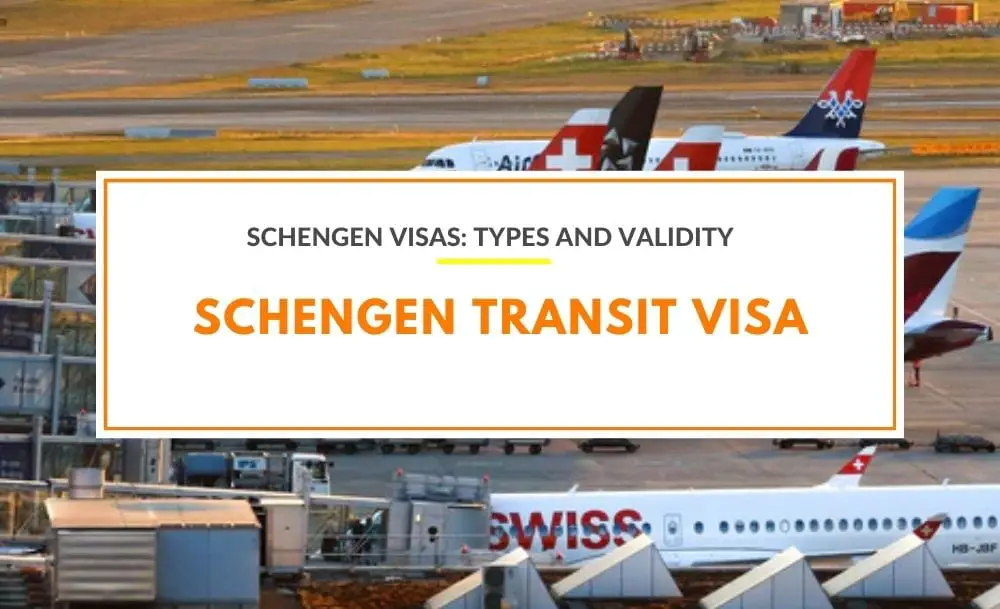
A Schengen Transit Visa is a permit that will allow nationals of non-Schengen countries to enter the international transit zone within the Schengen Area. If you will be making a short stop in an airport or seaport within the Schengen Area en route to a destination outside the Schengen zone then you may need a transit visa. With a transit visa, you may make a stopover in the Schengen Area, and during the stopover, you may disembark the aircraft or vessel and then stay for a certain time in the international transit zone without going through Immigration Control.
If you want to visit the Schengen Area for tourism, business, visiting family and friends, or other purposes, you need to apply for another type of Schengen visa depending on your purpose of travel.
Traveling to the Schengen Area amid Coronavirus travel restrictions
Because of the Coronavirus pandemic affecting everyone worldwide, there are travel restrictions preventing travel for most travellers in an effort to flatten the curve of the virus. These restrictions are updated regularly so it is always best to check the travel restrictions or upcoming travel restrictions per country if you will be allowed to travel.
The good news is that there are some exemptions to the ban, like the love contract that many Schengen countries honour in order to let partners reunite, or other ways around the ban.
If you are unsure about whether you will be allowed to travel to the Schengen Area right now, feel free to book a consultation with us and we can check for you based on your specific circumstances.
Who needs to apply for a Schengen Transit Visa in the UK?
If you are a UK citizen, remember that the rules on travel to Europe and the Schengen Area, have now changed due to Brexit.
Luckily, UK citizens who hold either a full UK passport or a BOTC, BOC, BPP or BS passport can still transit through the Schengen Area visa-free if they have not exceeded the 90/180 days rule.
Non-EU Nationals
Many non-EU nationals who reside in the UK are still required to get a Schengen visa to transit through the Schengen area. Each member state has its own rules regarding the Schengen transit visa. There are nationalities that need a transit visa when entering any of the Schengen Member State. Some member states have added other nationalities that are required to get a transit visa when entering their country. Check out the list of countries below.
Nationals of the following third countries require an airport transit visa when transiting through any Schengen country airport
- Afghanistan
- Bangladesh
- The Democratic Republic of the Congo
- Eritrea
- Ethiopia
- Ghana
- Iran
- Iraq
- Nigeria
- Pakistan
- Somalia
- Sri Lanka

In addition, nationals of the following third countries require an airport transit visa when transiting through the following Schengen country airports:
Austria
- Syria
Belgium
- Dominican Republic
- Guinea
- Guinea Bissau
- Nepal
- South Sudan
- Sudan
- Syria
The Czech Republic
- Chad
- Egypt
- India
- Kyrgyzstan
- Lebanon
- Libya
- Mali
- Mauritania
- Niger
- South Sudan
- Sudan
- Syria
- Turkey
- Turkmenistan
- Yemen
- Palestine
Denmark
- Syria
France
- Cameroon
- the Central African Republic
- Chad
- Congo (Brazzaville)
- Côte D’Ivoire
- Dominican Republic
- Guinea
- Haiti
- India
- Mali
- Mauritania
- Philippines
- Russia
- Senegal
- Sierra Leone
- South Sudan
- Sudan
- Syria
- Palestinians
Germany
- India
- Jordan
- Lebanon
- Mali
- South Sudan
- Sudan
- Syria
- Turkey
Greece
- Sudan
- Syria
Italy
- Senegal
- Syria
Luxembourg
- Guinea
- Guinea Bissau
- Nepal
- South Sudan
- Sudan
- Syria
- Togo
Netherlands
- Cuba
- Guinea
- Guinea Bissau
- Nepal
- Sierra Leone
- South Sudan
- Sudan
- Syria
Portugal
- Guinea
- Senegal
Spain
- Cameroon
- Côte D’Ivoire
- Cuba
- Djibouti
- Gambia
- Guinea
- Guinea Bissau
- Jordan
- Liberia
- Mali
- Sierra Leona
- Syria
- Togo
Switzerland
- Syria
- Turkey
Transit through France to the UK
As an effect of Brexit, France announced that some nationals from certain countries in Africa, Asia, and the Caribbean and South America will be required to obtain an airport transit visa in addition to their UK visas to transit through France or Netherlands. Travellers with British long-stay visa or British residence permit are still required to produce an ATV.
Nationals of the following countries will need to apply for an airport transit visa if they are transiting through France:
Africa
- Angola
- Cameroon
- Central Africa Republic
- Democratic Republic of Congo
- Eritrea
- Ethiopia
- Ghana
- Guinea
- Ivory Coast
- Mali
- Mauritania
- Nigeria
- Senegal
- Sierra Leone
- Somalia
- Sudan
- South Sudan.
Asia
- Afghanistan
- Bangladesh
- Iran
- Iraq
- Pakistan
- Philippines
- Palestine
- Russia
- Syria
- Sri Lanka
Caribbean and South America
- Cuba
- the Dominican Republic
- Haiti
Exemptions for Transit Visa
To every rule there are exemptions. If you belong to one of the categories below then you are not required to get a Schengen transit visa:
- Has a short-stay visa for a Schengen country
- Has a diplomatic passport
- Has a valid residence permit issued by a Schengen state, a Member State of the European Union or the European Economic Area, the Principality of Andorra, Canada, Japan, Republic of San Marino, or the United States
- Has a family member of a citizen of the EU, EEA or Switzerland
- hold a valid visa issued by a Schengen state, a Member State of the European Union or the European Economic Area, Canada, Japan or the United States
- A flight crew who is national of a contracting party to the Chicago Convention on International Civil Aviation
Who needs a Seafarers Schengen transit visa?
You will need a Seafarers Schengen transit visa if you are a third-country national who needs to:
- Disembark because your contract ended, due to sickness, repatriation, urgent family matters, holiday
- Embark on a vessel that is or will be in a Schengen seaport
- Transfer from one vessel to another vessel which is or will dock in a Schengen port
If you require a Schengen transit visa and want to apply from the UK, the main requirement is that you must have a UK residence permit valid for at least another 3 more months beyond the date you plan to leave the Schengen Area.
Before starting a visa application, or booking your trip, make sure to check whether you need a Schengen transit visa or not.
If you have a 3-month UK visa you can extend it for 3 more months in order to be eligible to apply for a Schengen transit visa from within the UK. You must apply for an extension before your visa expires and while you’re still in the UK.
Note: You can stay in the UK until the decision about the extension is taken, but only if you have applied within the visa period.
Steps to Applying for a Schengen Transit Visa from the UK
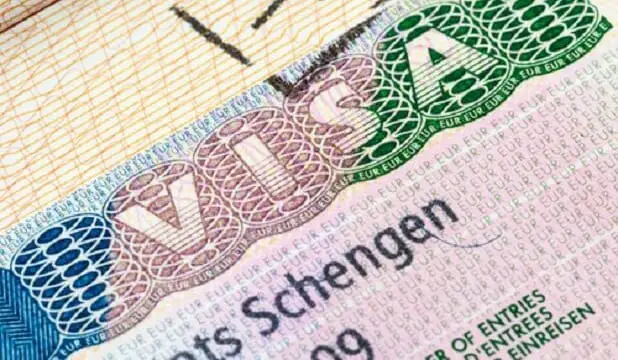
Step 1: Know Your Visa Type and Validity
Types of Transit Schengen Visa
- Airport Transit Schengen Visa – a permit that is valid for 24 hours and allows you to connect your flights at a Schengen airport. It enables you to stop and wait in the international transit area of a Schengen airport for your next flight on the way to a non-Schengen country.
- Seafarers Transit Schengen Visa – a permit that is valid for a maximum of 5 days and allows a seaman to disembark their vessel while waiting for their next means of transport to a non-Schengen country.
A Schengen transit visa is not valid when you need to transit through more than one airport within the Schengen Area and if you need to go outside the international transit area. If you have the intention to go beyond the international transit area, then you need to apply for another type of visa depending on the purpose of your travel.
You will also have to apply for a regular short-term Schengen visa if you need to leave the airport where you land first if you need to take a flight to another airport within the same country.
Step 2: Identify where to make the application and book an appointment
Apply for a transit visa at the embassy of the Schengen country that you will be transiting through in your home country. Book an interview through the website of the consulate or embassy of the country you are planning to visit, in your country of residence. You can book your interview 6 months before your trip at the earliest and 2 weeks before your trip at the latest.
Step 3: Complete your application form
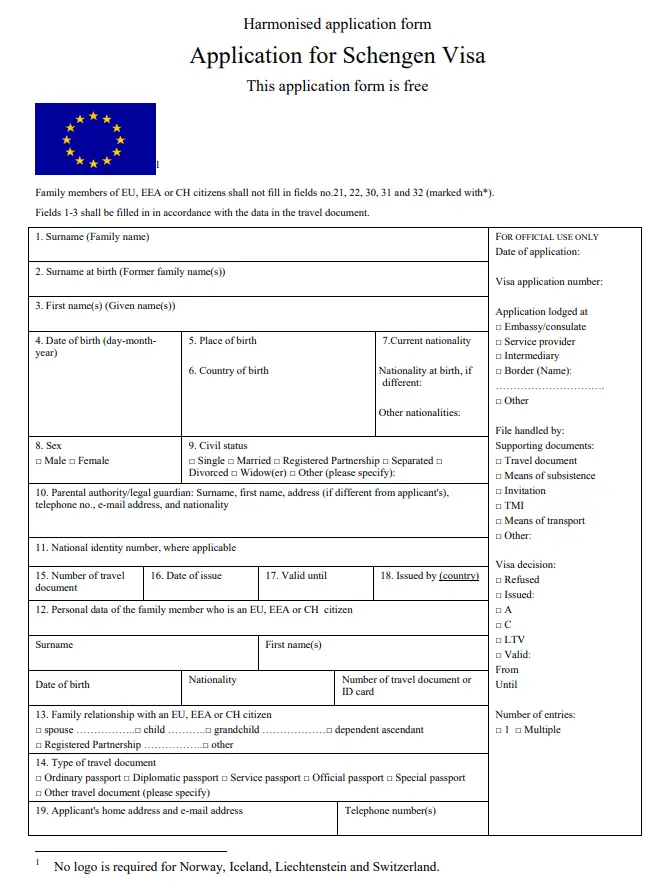
The Schengen Visa application form contains questions about you including:
- Name and surname
- Date and place of birth
- Nationality
- Sex and marital status
- National Identity number
- Passport number
- Home address and email
- Purpose of trip
- Question regarding previous trips to Schengen, if any
- Intended date of arrival in Schengen area you are visiting, and the intended period of stay
- Cost of traveling and remaining in Schengen area you are visiting, who will cover them, etc.
Make sure your answers are correct and that they comply with the information in the rest of the documents. Complete the form, print it twice, and sign both copies at the end.
Find out more about how to complete a Schengen vis application form in this blog post.
Step 4: Prepare your documents
What documents are required when applying for a Schengen transit visa in the UK?
The difference between a Schengen transit visa and other Schengen visa types lies in the requirements of the embassy or consulate where you will have to apply. There are some extra documents that you will be required to submit in order to be able to obtain a transit visa for Europe.

Documents needed for an Airport Transit Schengen Visa
- Visa application form – Fully completed and signed. Learn how to complete your Schengen visa application form here.
- Passport – It should be valid for at least 3 months beyond your trip and has been issued within the last 10 years, and have a minimum of 2 blank pages for your visa to be attached
- 2 recent photos – According to the Schengen visa photo requirements, the photo must be taken within the last three months. It is recommended to have a white plain background.
- Proof to show you onward journey to the final destination – You can submit a copy of your flight ticket indicating your name, date, and destination to a non-Schengen Area or a visa for the country you will be traveling to (if applicable)
- Travel Insurance – A document that proves you have travel health insurance for the whole Schengen territory, with a minimum coverage of 30,000 euros in case of any medical emergency as illnesses, accidents, and even repatriation in case of death. Find out how to apply for the right type of medical and travel insurance here.
Documents needed for a Seafarer Transit Schengen Visa
- Visa application form – Fully completed and signed. Learn how to complete your Schengen visa application form here.
- Passport – It should be valid for at least 3 months beyond your trip and has been issued within the last 10 years, and have a minimum of 2 blank pages for your visa to be attached
- 2 recent photos – According to the Schengen visa photo requirements, the photo must be taken within the last three months. It is recommended to have a white plain background.
- Copies of passport data pages
- Original and photocopy of Seaman’s book
- Invitation Letter – Recently issued by the inviting Shipping Company in the Schengen country in which the seafarer will embark/disembark.
- Employment Contract – Contract with the navigation company/ship in order to board the ship.
Step 5: Attend your appointment
The visa interview is a meeting between you and the consular officer/interviewer. During this interview, the consular officer will ask you several questions about you and your intended trip. You will also be submitting the required documents throughout the meeting, to the interviewer.
Show up at the appointment centre on time. Remember that if you are late even for a few minutes, then they will probably cancel your appointment.

You will also have to get your fingerprints scanned at the consulate’s office if you have never before applied for a Schengen Visa. If you have, then you don’t have to do it again, since the consulate should be able to look it up.
After the verification of your application, the application form information will be entered into the online system of the consulate or embassy and you will receive a printed copy of your application. This process usually takes about 10 to 15 minutes. After you get the printed form, please make sure to verify all the details are correct and sign the form.
Underage applicants must be accompanied by their parent or legal guardian.
Visa Fees for UK Residents
When applying for a Schengen visa there is a non-refundable mandatory visa fee every applicant must pay.
The Schengen visa costs vary depending on the type of visa and age of the applicant as well as some other exceptions stated below in the text. The Schengen visa fee can be paid in the designated consulate/embassy via cash, debit or credit card. However, some consulates may not allow you to pay by credit card.
The Schengen visa application costs include the visa fees payable at the corresponding embassy/consulate when applying. Find out how much you need to pay for your Schengen transit visa, or even if your fee is waived in our blog post: Schengen Visa Fees: How much does a Schengen visa cost?
Step 6: Receive your visa
Schengen Transit Visa Application Processing Time in UK
How long can the application process take?
Most applications for a Schengen transit visa will be processed in around 10 working days, assuming you provide all the relevant information and there’s no issue with your application. However, depending on the situation, the processing time for a transit visa to Europe might take up longer if there is something extraordinary with the individual case or any political situation is on the go.
The updated Visa Code took effect February 2020 wherein the earliest time to apply for a Schengen visa is 6 months ahead of your planned trip and it is strongly recommended that the latest you submit your application is 15 working days before your intended travel to the Schengen Area.
Visa application decision:
- Approved – Once your visa is approved, it will be stamped in your passport. Make sure to carefully check the visa sticker to make sure everything is correct and exactly how you need it. An Airport Transit Visa is valid for 24 hours, while a Seafarer's Transit Visa is valid for a maximum of 5 days.
- Rejected – if your visa has been rejected, it would have been for a specific reason and you have the right to appeal.
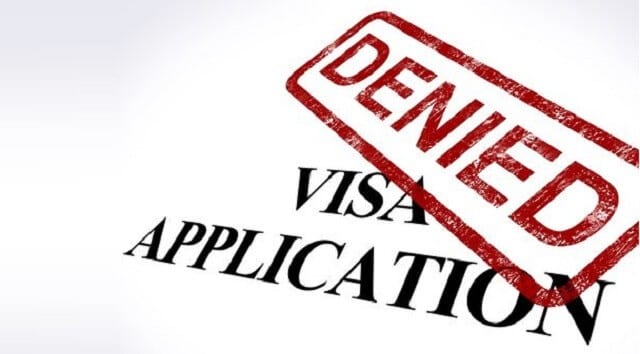
Common rejection reasons include:
- You applied for the wrong visa – it is your responsibility to apply for the correct visa depending on how long you are going to the Schengen area for and your reason for travelling there
- It is not clear that you plan to return to the UK – it must be clear that you intend to return to the UK before the visa expires. If the visa staff have doubts about this, your visa will be rejected
- The purpose of your trip cannot be established – the reason why you are planning to go to The Schengen area must be made clear. You can do this by providing specific documents like a full itinerary, work contract or invitation letter, etc.
Want to know more reasons why a visa might get rejected and how to avoid visa rejection or visa refusal? Find out in this blog post.
What If My Schengen Transit Visa Is Rejected?
If you receive a negative answer in your Schengen Transit Visa application, this does not mean you cannot ever transit through the Schengen area. You have two options.
- File an appeal for a Schengen Transit Visa rejection if you believe that the decision to deny you a visa is unjust. You should have a strong basis for your complaint. You can appeal this decision by writing an appeal letter for a Schengen Transit Visa rejection.
- Reapply by correcting the mistakes you did in your previous application. Or improve your situation to comply with the eligibility criteria for a Schengen Transit Visa.
Schengen Transit Visa Extension
Short-stay Schengen visa extensions are permitted for a few reasons. However, you will have a very low chance to get one, if you do not have a strong reason as the basis of your application.
According to the Schengen visa policy, acceptable reasons to extend a Schengen short-stay visa are only the following:
Late Entry
You can base your visa extension application on this reason, only if you have a single-entry short-stay visa. However, this is your best case to extend your visa. You can apply for this visa extension if you have entered Schengen after your visa became valid. I.e. if your visa became valid on August 1, but you entered Schengen on August 15, you can apply for a two-week visa extension, and you are very likely to get it.
Humanitarian Reasons
The Schengen visa policy has made it possible to extend a short-stay Schengen visa to prevent or overcome hardship for third-country nationals. You will be granted with a short-stay visa extension based on humanitarian reasons if you need to stay in one of the member states to continue receiving medical treatment, to take part in the funeral after the sudden death of a family member, to give support to a person close to you who is going through some kind of hardship, etc.
Force Majeure
If something unexpected has occurred all of the sudden in your home country before your visa expiration, as a conflict or war, or even violent protests across the country, extreme weather conditions, no flight connections because of consecutive earthquakes or other reasons, then you have a good chance to get a Schengen short-stay visa extension. You will be granted an extension of a few weeks, or until the situation in your home country changes. If the situation does not change, you will have to apply once again for a short-stay visa renewal, to remain in Schengen.
Important Personal Reasons
Risky, but you should still give it a try if you have no other chance. If you have some unfinished business in one of the Schengen Member States, then you may apply for the extension. The immigration authorities will then decide whether you should be granted a visa extension or not.
Need to extend your Schengen visa? Find out how and avoid penalties for overstaying in the Schengen zone by reading our blog post: Overstaying in the Schengen Zone? Here’s How to Extend Your Schengen Visa.
IaM can help with your visa application to the United States, the UK & other countries
If you need help with a US visa, a UK Visa, or visa to Europe, including help with appointment booking obligations, IaM can help. For more information and advice on US immigration, UK immigration law and US visa applications or if you need any help or assistance please, reach out to your Visa Coordinator at IaM.
- UK May Tighten Visa Rules for Some Nationalities - 7 May 2025
- Romania Off US Visa-Free List - 6 May 2025
- UK Fiancé Visa Made Simple: Requirements, Process & Tips - 5 May 2025


